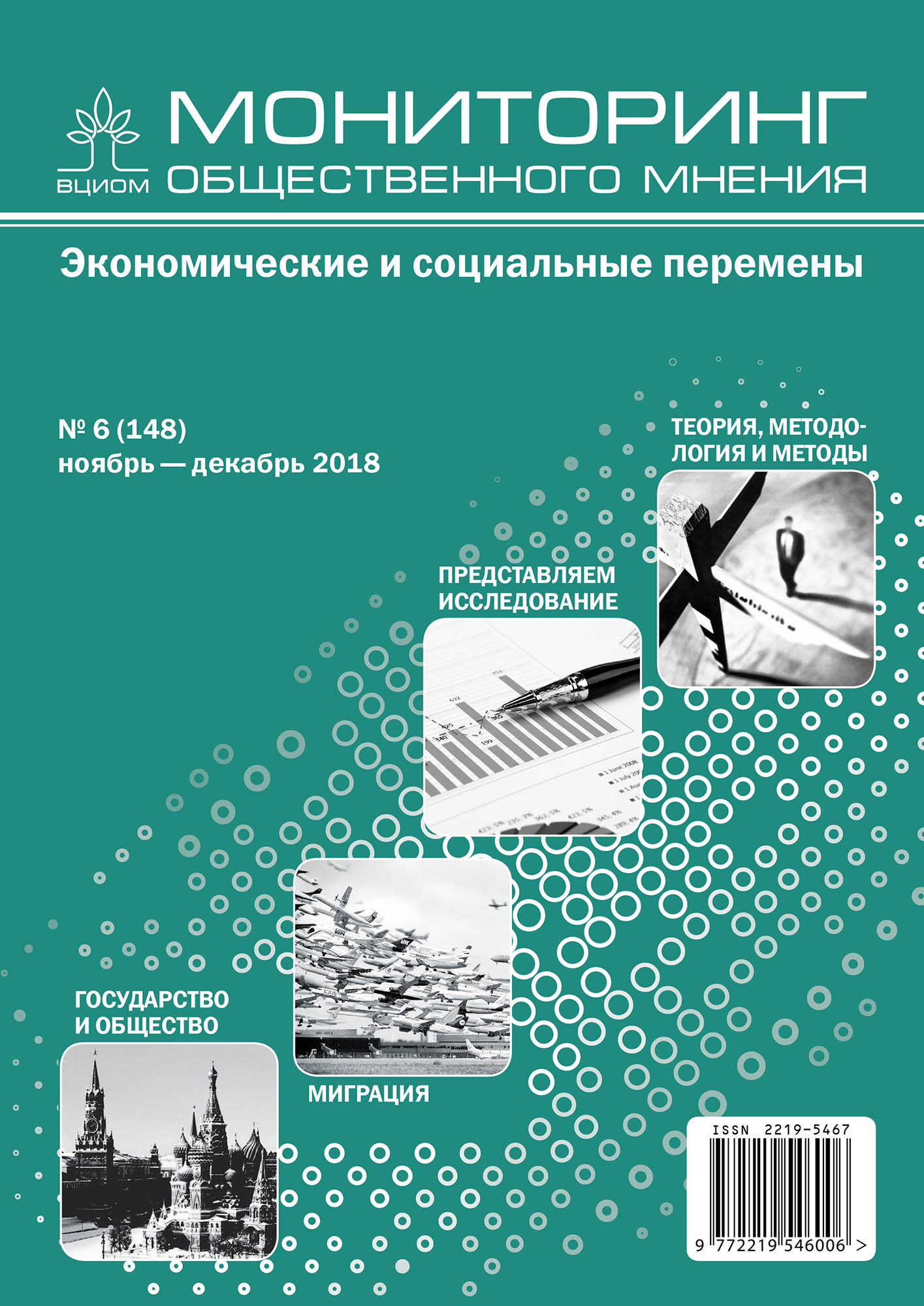Новая волна интеллектуальной эмиграции из России: мотивы, каналы и механизмы
DOI:
https://doi.org/10.14515/monitoring.2018.6.09Ключевые слова:
квалифицированные мигранты, высококвалифицированные специалисты, эмиграция, миграция, социальные сети, миграционные намерения, миграционные потоки, ресурсыАннотация
Работ, анализирующих современные эмиграционные намерения россиян и их реализацию, мало. Одна из причин — отсутствие адекватной статистической информации о людях, выезжающих за границу и не снимающихся с регистрационного учета по месту жительства. А таких людей — большинство. Восполнить этот недостаток можно как анализом статистики основных принимающих мигрантов из России стран, что уже отчасти сделано другими исследователями, так и с помощью методов качественной социологии. В статье анализируются результаты полуструктурированных интервью с квалифицированными эмигрантами, уехавшими из России в 2011—2017 гг., взятыми в рамках исследовательского проекта Института социального анализа и прогнозирования РАНХиГС в 2017 г. Анализ интервью, основанный на разделении мотивов, каналов и механизмов эмиграции из России специалистов с высшим образованием, позволяет ответить на вопросы о сходствах и различиях в выборе тех или иных моделей между представителями отдельных профессиональных групп, людьми разных возрастов и эмигрирующими в разные страны. Среди основных результатов исследования — отсутствие значимых различий в мотивации отъезда между всеми перечисленными категориями. В последние годы для большинства квалифицированных эмигрантов экономические и, частично, политические мотивы оказались ведущими. Однако выбор каналов и механизмов эмиграции в гораздо большей степени зависит от профессиональных занятий, типа занятости, возраста и даже конкретного направления миграции. IT-специалисты и занятые в финансово-экономической сфере чаще используют для эмиграции трудовые контракты, молодые ученые — образовательные каналы с поиском грантовых программ и бесплатных учебных стажировок; представители творческих и гуманитарных профессий более старшего возраста — образовательные каналы с опорой на собственные финансовые ресурсы. Наибольшим разнообразием используемых для выезда каналов и механизмов отличается группа удаленно занятых квалифицированных эмигрантов.






